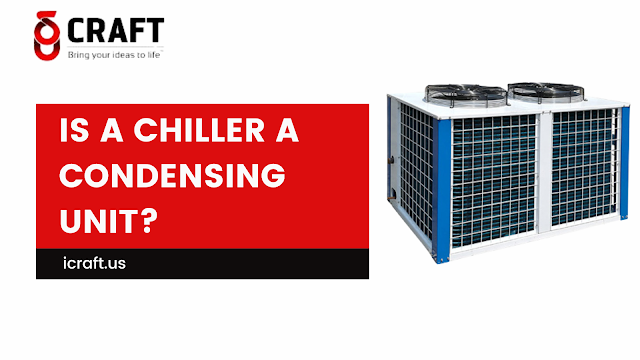Is a Chiller a Condensing Unit?
So, you are in the market looking for some cooling solutions and keep coming across these terms – chillers and condensing units.
Naturally, you might be wondering, are they the same thing?
Well, hop in as we dissect these terms in a way that’s as cool and refreshing as a breeze on a hot summer day.
What’s in a Name?
First off, understanding each component is crucial. And yeah, the terminology can be as tricky as getting that last bit of toothpaste out of the tube.
Chillers: Think of chillers as the big bosses of cooling. They are like a cold heart, pumping chilled water or another coolant through a system to pull heat out of spaces or processes. They do this through a cycle involving evaporation, condensation, and compression.
Condensing Units: On the flip side, the condenser is an outdoor component of your cooling system. It’s where the magic of condensation happens, turning refrigerant vapor back into liquid. The condensing unit houses the compressor, the condenser coil, and the condenser fan.
Peas in a Pod or Apples and Oranges?
So, do chillers and condensers share a diary or live in different neighborhoods?
The answer isn’t as straightforward as you might hope, but let’s navigate through this.
The Connection
Both play pivotal roles in the cooling orchestra
They use a refrigeration cycle to do their job
The Divide
Chillers are standalone systems. They are the maestros managing the entire cooling process, from taking in warm fluid, chilling it, and then sending it back to do its job.
Units are more like a single instrument within an orchestra. They focus on converting vapor into liquid but need other components, like evaporators (found in chillers), to complete the cooling symphony.
Why It Matters?
Making informed decisions helps in making informed decisions, especially when tailoring cooling solutions that fit like a glove for specific needs.
The Needs-Based Approach to Choosing
Opt for a chiller if you need centralized cooling, especially for large spaces or industrial processes. They are perfect when you need to chill to the thrill, offering precise temperature control.
A unit condenser comes into play when you’re looking at split systems or specific localized cooling. They’re your go-to for straightforward cooling tasks, where the magic happens outdoors, and cool air gets delivered inside.
Efficiency and Space
Inverter Condensing Unit: This gem uses inverter technology for that sweet spot of efficiency. It adjusts the compressor speed in real-time, matching the cooling demand. Ideal for spaces where energy consumption and operational costs are a concern.
Chillers: They come in various shapes and sizes, and some now incorporate inverter technology as well. Space and the cooling load determine whether these are your best shots.

.png)


Comments
Post a Comment